Lao Tzu Quotes
Quotes tagged as "lao-tzu"
Showing 1-30 of 47
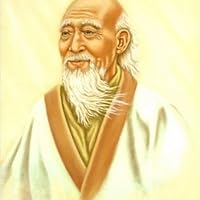
“When people see some things as beautiful,
other things become ugly.
When people see some things as good,
other things become bad.”
― Tao Te Ching
other things become ugly.
When people see some things as good,
other things become bad.”
― Tao Te Ching

“To bear and not to own; to act and not lay claim; to do the work and let it go: for just letting it go is what makes it stay.”
― Tao Te Ching
― Tao Te Ching
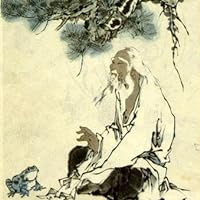
“The baby looks at things all day without winking; that is because his eyes are not focused on any particular object. He goes without knowing where he is going, and stops without knowing what he is doing. He merges himself within the surroundings and moves along with it. These are the principles of mental hygiene.”
―
―
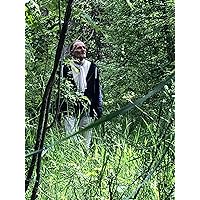
“These are the three stages of enlightenment, the three glimpses of satori.
1. The first stage enlightenment:
A Glimpse of the Whole
The first stage of enlightenment is short glimpse from faraway of the whole. It is a short glimpse of being.
The first stage of enlightenment is when, for the first time, for a single moment the mind is not functioning. The ordinary ego is still present at the first stage of enlightenment, but you experience for a short while that there is something beyond the ego.
There is a gap, a silence and emptiness, where there is not thought between you and existence.
You and existence meet and merge for a moment.
And for the first time the seed, the thirst and longing, for enlightenment, the meeting between you and existence, will grow in your heart.
2. The second stage of enlightenment:
Silence, Relaxation, Togetherness, Inner Being
The second stage of enlightenment is a new order, a harmony, from within, which comes from the inner being. It is the quality of freedom.
The inner chaos has disappeared and a new silence, relaxation and togetherness has arisen.
Your own wisdom from within has arisen.
A subtle ego is still present in the second stage of enlightenment.
The Hindus has three names for the ego:
1. Ahamkar, which is the ordinary ego.
2. Asmita, which is the quality of Am-ness, of no ego. It is a very silent ego, not aggreessive, but it is still a subtle ego.
3. Atma, the third word is Atma, when the Am-ness is also lost. This is what Buddha callas no-self, pure being.
In the second stage of enlightenment you become capable of being in the inner being, in the gap, in the meditative quality within, in the silence and emptiness.
For hours, for days, you can remain in the gap, in utter aloneness, in God.
Still you need effort to remain in the gap, and if you drop the effort, the gap will disappear.
Love, meditation and prayer becomes the way to increase the effort in the search for God.
Then the second stage becomes a more conscious effort. Now you know the way, you now the direction.
3. The third stage of enlightenment:
Ocean, Wholeness, No-self, Pure being
At the third stage of enlightenment, at the third step of Satori, our individual river flowing silently, suddenly reaches to the Ocean and becomes one with the Ocean.
At the third Satori, the ego is lost, and there is Atma, pure being. You are, but without any boundaries. The river has become the Ocean, the Whole.
It has become a vast emptiness, just like the pure sky.
The third stage of enlightenment happens when you have become capable of finding the inner being, the meditative quality within, the gap, the inner silence and emptiness, so that it becomes a natural quality.
You can find the gap whenever you want.
This is what tantra callas Mahamudra, the great orgasm, what Buddha calls Nirvana, what Lao Tzu calls Tao and what Jesus calls the kingdom of God.
You have found the door to God.
You have come home.”
―
1. The first stage enlightenment:
A Glimpse of the Whole
The first stage of enlightenment is short glimpse from faraway of the whole. It is a short glimpse of being.
The first stage of enlightenment is when, for the first time, for a single moment the mind is not functioning. The ordinary ego is still present at the first stage of enlightenment, but you experience for a short while that there is something beyond the ego.
There is a gap, a silence and emptiness, where there is not thought between you and existence.
You and existence meet and merge for a moment.
And for the first time the seed, the thirst and longing, for enlightenment, the meeting between you and existence, will grow in your heart.
2. The second stage of enlightenment:
Silence, Relaxation, Togetherness, Inner Being
The second stage of enlightenment is a new order, a harmony, from within, which comes from the inner being. It is the quality of freedom.
The inner chaos has disappeared and a new silence, relaxation and togetherness has arisen.
Your own wisdom from within has arisen.
A subtle ego is still present in the second stage of enlightenment.
The Hindus has three names for the ego:
1. Ahamkar, which is the ordinary ego.
2. Asmita, which is the quality of Am-ness, of no ego. It is a very silent ego, not aggreessive, but it is still a subtle ego.
3. Atma, the third word is Atma, when the Am-ness is also lost. This is what Buddha callas no-self, pure being.
In the second stage of enlightenment you become capable of being in the inner being, in the gap, in the meditative quality within, in the silence and emptiness.
For hours, for days, you can remain in the gap, in utter aloneness, in God.
Still you need effort to remain in the gap, and if you drop the effort, the gap will disappear.
Love, meditation and prayer becomes the way to increase the effort in the search for God.
Then the second stage becomes a more conscious effort. Now you know the way, you now the direction.
3. The third stage of enlightenment:
Ocean, Wholeness, No-self, Pure being
At the third stage of enlightenment, at the third step of Satori, our individual river flowing silently, suddenly reaches to the Ocean and becomes one with the Ocean.
At the third Satori, the ego is lost, and there is Atma, pure being. You are, but without any boundaries. The river has become the Ocean, the Whole.
It has become a vast emptiness, just like the pure sky.
The third stage of enlightenment happens when you have become capable of finding the inner being, the meditative quality within, the gap, the inner silence and emptiness, so that it becomes a natural quality.
You can find the gap whenever you want.
This is what tantra callas Mahamudra, the great orgasm, what Buddha calls Nirvana, what Lao Tzu calls Tao and what Jesus calls the kingdom of God.
You have found the door to God.
You have come home.”
―

“Intellectual knowledge exists in and of the brain.
Because the brain is part of the body, which must one day expire, this collection of facts, however large and impressive, will expire as well.
Insight, however, is a function of the spirit.
Because your spirit follows you through cycle after cycle of life, death, and rebirth, you have the opportunity of cultivating insight in an ongoing fashion.
Refined over time, insight becomes pure, constant, and unwavering.
This is the beginning of immortality.”
―
Because the brain is part of the body, which must one day expire, this collection of facts, however large and impressive, will expire as well.
Insight, however, is a function of the spirit.
Because your spirit follows you through cycle after cycle of life, death, and rebirth, you have the opportunity of cultivating insight in an ongoing fashion.
Refined over time, insight becomes pure, constant, and unwavering.
This is the beginning of immortality.”
―

“Practice non-action.
Work without doing.
Magnify the small;
increase the few.
Reward bitterness with care.”
―
Work without doing.
Magnify the small;
increase the few.
Reward bitterness with care.”
―

“Revere the unity of all-that-is
carry out your daily activities with compassion;
if you do not limit your compassion,
you yourself will not be limited.”
―
carry out your daily activities with compassion;
if you do not limit your compassion,
you yourself will not be limited.”
―

“Material and infinite are inseparable
Appreciating their interconnectedness
is the gateway to understanding”
―
Appreciating their interconnectedness
is the gateway to understanding”
―
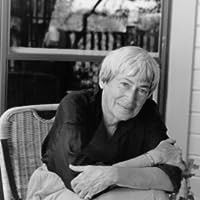
“So wise souls, leaving self behind
move forward,
and setting self aside
stay centered.
Why let the self go?
To keep what the soul needs.”
― Tao Te Ching
move forward,
and setting self aside
stay centered.
Why let the self go?
To keep what the soul needs.”
― Tao Te Ching
“In a world where ‘likes’ and ‘followers’ define worth, we have become a society of self-promotion and self-indulgence, where the true value of human connection and genuine experience is lost to the endless pursuit of more.”
―
―

“Take time for the clearance of the mind, preparing for adherence to perseverance for the journey of another thousand miles.”
―
―

“11 The uses of not
Thirty spokes
meet in the hub.
Where the wheel isn't
is where it's useful.
Hollowed out,
clay makes a pot.
Where the pot's not
is where it's useful.
Cut doors and windows
to make a room.
Where the room isn't,
there's room for you.
So the profit in what is
is in the use of what isn't.”
― Tao Te Ching
Thirty spokes
meet in the hub.
Where the wheel isn't
is where it's useful.
Hollowed out,
clay makes a pot.
Where the pot's not
is where it's useful.
Cut doors and windows
to make a room.
Where the room isn't,
there's room for you.
So the profit in what is
is in the use of what isn't.”
― Tao Te Ching

“They mingle their life with the world,
they mix their mind up with the world.
Ordinary people look after them.
Wise souls are children.”
― Tao Te Ching
they mix their mind up with the world.
Ordinary people look after them.
Wise souls are children.”
― Tao Te Ching
“In the end, it is not the grand gestures of love that sustain a relationship, but the daily acts of kindness and devotion.”
―
―
“When the powerful control the narrative, they hold the reins of perception. In the era of corporate western media, the masses must question what they’re being fed, lest they become unwitting pawns in the game of power.”
―
―

“The sage gives more than he takes;
how can he do this?
because he has the richness of Tao”
― Tao Te Ching
how can he do this?
because he has the richness of Tao”
― Tao Te Ching

“Focusing on the distance brings resistance but these steps of brevity feel heavenly & somehow still lead to a life of longevity.”
― Sleeping With Enormity: The Art Of Seducing Your Dreams & Living With Passion
― Sleeping With Enormity: The Art Of Seducing Your Dreams & Living With Passion

“Onaylayacak bir tanrı olmaksızın da ahlakın var olabileceğini ya da ölçütünü insandan almayan bir maneviyatın mümkün olduğunu kabul etmeyenler için Lao Tzu'nun ahlakının sağlamlığı ve manevi yol göstericiliğindeki güzellik anlaşılmaz, gayrımeşru ya da çok rahatsız edici olmalı. (Ursula)”
― Tao Te Ching
― Tao Te Ching
“Our existence is a philosophical conundrum in the era of social media - do we truly exist if we aren’t validated by likes and followers?”
―
―
“When they push your buttons and then blame you for pushing back, that's not just disrespect, it's pure manipulation.”
― COVERT CONTROL: Unveiling the Dark Art of Social Manipulation
― COVERT CONTROL: Unveiling the Dark Art of Social Manipulation
“A tree that is unbending is easily broken in a powerful storm. But not grass.” Scratching the scar at the corner of one eye he added , “Or so says some guy named Lao Tzu.”
― Go
― Go
“Love is a symphony of the heart, a melody that echoes through the ages, and a song that we all long to sing.”
―
―
“Love is the greatest adventure of all, a journey that takes us to the highest peaks and the deepest valleys, but ultimately leads us to a place of profound happiness and fulfillment.”
― Life is Meaningless and That's Okay: Embracing Your Existential Freedom
― Life is Meaningless and That's Okay: Embracing Your Existential Freedom

“There was something that finished chaos, Born before Heaven and Earth. So silent and still! So pure and deep! It stands alone and immutable, Ever-present and inexhaustible. It can be called the mother of the whole world. I do not know its name. I call it the Way. For the lack of better words I call it great.”
― Tao Te Ching: The Taoism of Lao Tzu Explained
― Tao Te Ching: The Taoism of Lao Tzu Explained
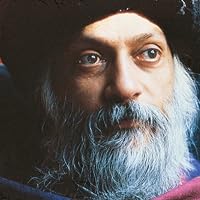
“Enjoy life. Act, but act in a relaxed way. The greatest art in life is to learn how to act in a relaxed way. Action is a must -- you cannot live without action -- but action can be almost inaction. That's what Lao Tzu means when he uses the word WU-WEI. That is very fundamental to Lao Tzu and that is very fundamental to me too: I would like you to learn WU-WEI. WU-WEI means action without action -- doing a thing in such a way that you are not tense in doing it, doing a thing in such a way that you are playful about it, doing a thing in such a way that you are not worried about it, doing it and yet remaining detached, doing it and yet remaining a witness.
MAN NEEDS A BALANCE, and that balance is possible only if you learn the art of being active and yet remaining inactive inside. And that's what we are trying to do here, and in the bigger commune you will have more facilities to be active and inactive together.
People who come to the ashram are a little puzzled. Many have written to me, "Everybody is working but nobody seems to be tense." In the office so many people are working, in the workshops, in the press office... so many people are working. Nearabout three hundred people are constantly working, and with no holiday -- the Sunday never comes. But nobody is tense.
Work is beautiful if it can be done without any tension, if it can be done playfully, if it can be done without any hurry and yet without relapsing into laziness. It is a very subtle and delicate art.”
― The Fish in the Sea is Not Thirsty
MAN NEEDS A BALANCE, and that balance is possible only if you learn the art of being active and yet remaining inactive inside. And that's what we are trying to do here, and in the bigger commune you will have more facilities to be active and inactive together.
People who come to the ashram are a little puzzled. Many have written to me, "Everybody is working but nobody seems to be tense." In the office so many people are working, in the workshops, in the press office... so many people are working. Nearabout three hundred people are constantly working, and with no holiday -- the Sunday never comes. But nobody is tense.
Work is beautiful if it can be done without any tension, if it can be done playfully, if it can be done without any hurry and yet without relapsing into laziness. It is a very subtle and delicate art.”
― The Fish in the Sea is Not Thirsty
All Quotes
|
My Quotes
|
Add A Quote
Browse By Tag
- Love Quotes 98.5k
- Life Quotes 76.5k
- Inspirational Quotes 73.5k
- Humor Quotes 44k
- Philosophy Quotes 30k
- Inspirational Quotes Quotes 27k
- God Quotes 26.5k
- Truth Quotes 24k
- Wisdom Quotes 24k
- Romance Quotes 23.5k
- Poetry Quotes 22.5k
- Death Quotes 20k
- Life Lessons Quotes 20k
- Happiness Quotes 19k
- Quotes Quotes 18k
- Faith Quotes 18k
- Hope Quotes 18k
- Inspiration Quotes 17k
- Spirituality Quotes 15k
- Religion Quotes 15k
- Motivational Quotes 15k
- Writing Quotes 15k
- Relationships Quotes 14.5k
- Life Quotes Quotes 14.5k
- Love Quotes Quotes 14k
- Success Quotes 13.5k
- Time Quotes 12.5k
- Motivation Quotes 12.5k
- Science Quotes 11.5k
- Motivational Quotes Quotes 11.5k

